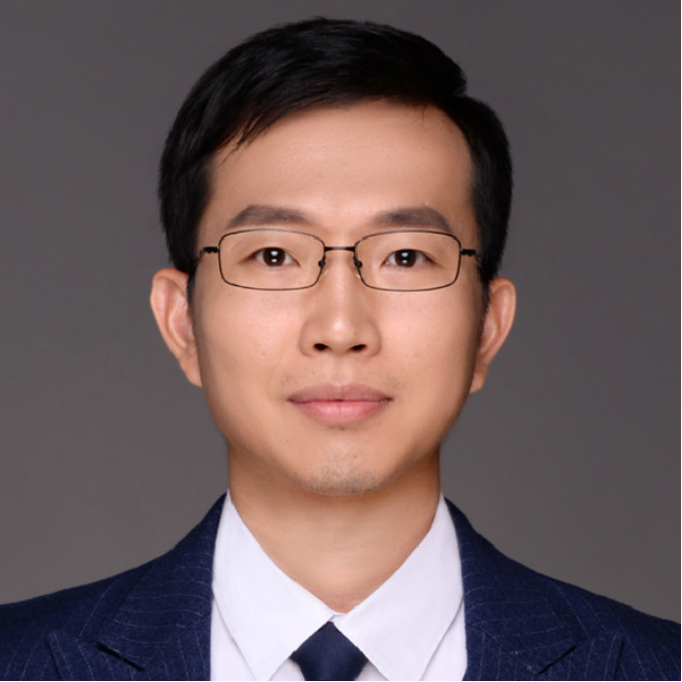Department of Microbiology
Fuping You

Personal profile
You Fuping currently serves as Director of the Department of Etiology at Peking University School of Basic Medical Sciences, Deputy Director of the Institute of Systems Biomedicine of Peking University, Tenured Researcher, Doctoral Supervisor. He is a recipient of the "Youth Thousand Talents Plan" and the National Natural Science Foundation of China (NSFC) Excellent Young Scientists Fund. His research focuses on how pattern recognition regulates innate immunity and cell death, as well as their functions and molecular mechanisms in antiviral processes and tumorigenesis, aiming to provide a theoretical basis and therapeutic targets for the treatment of related diseases.
From September 2006 to July 2011, he pursued his doctoral degree at the School of Life Sciences, Peking University, specializing in innate immune signal transduction research. From August 2011 to June 2013, he worked as a postdoctoral fellow at the Yale University School of Medicine, and was promoted to Associate Researcher from June 2013 to December 2014, during which he consistently focused on the field of infectious diseases and innate immunity.
In December 2014, he joined the Institute of Systems Biomedicine of Peking University, was selected into the "Youth Thousand Talents Plan" of the Organization Department of the CPC Central Committee, and served as a Researcher and Doctoral Supervisor. Since December 2019, he has been promoted to Deputy Director and Tenured Researcher of the institute. Since September 2024, he has also held the position of Director of the Department of Etiology at Peking University School of Basic Medical Sciences.
He has won a number of important awards, including the 2023 Beijing Science and Technology Progress Award (Natural Science Category) - Second Prize (as the first completed person), the 2023 Lin Songnian Outstanding Young Scholar Award, the 2022 Peking University Health Science Center Young Science and Technology Award, the 2016 Luye Outstanding Life Science Award, the 2015 "Thousand Talents Plan" Youth Talent of the Organization Department of the CPC Central Committee, the 2013 National Excellent Doctoral Dissertation Award, and the 2011 First Johnson & Johnson Asia Excellent Life Science Paper Award - First Prize.
In terms of academic paper publication, many of his works have been published in international top-tier or authoritative journals such as Nature Immunology , Cell and Cell Host & Microbe . His research achievements focus on areas including innate immune regulation mechanisms, viral infection and immune response, and tumor immunology. For example, his study published in Nature Immunology revealed the key role of ELF4 in type I interferon induction and host antiviral response, providing an important theoretical basis for understanding antiviral immune mechanisms. During the COVID-19 pandemic, his team's research on the interaction between the SARS-CoV-2 spike protein and TLR4, as well as the abnormal regulation mechanism of innate immunity in COVID-19 infection, was published in journals such as Cell Research ( Cell Res ) and Cell Host & Microbe , offering important references for COVID-19 prevention and treatment-related research. These papers not only hold high academic value but also provide new ideas and targets for the diagnosis and treatment of related diseases.
Over the past five years, he has led or participated as a core member in a number of major national and provincial-level scientific research projects, with sufficient research funds and extensive project influence. Among them, the projects he hosted include NSFC General Program projects such as "Study on ELF4-Related Antiviral Innate Immune Signaling Pathways" and "Study on the Function and Mechanism of ELF4-Related Innate Immune Pathways in Anti-Plasmodium Infection", the NSFC Excellent Young Scientists Fund Project titled "Innate Immune Signaling Pathways and Related Diseases", and the National Key R&D Program Project Topic "R&D and Application of New Adjuvants for Recombinant Subunit Vaccines". These projects focus on key fields such as innate immune signaling pathways, antiviral immunity, and vaccine adjuvant R&D, providing important support for promoting the development of related disciplines.
He holds positions including Standing Committee Member and Chairman of the Youth Committee of the Systems Biomedicine Professional Committee of the Chinese Association of Pathophysiology, Vice Chairman of the Youth Committee of the Sepsis and Shock Professional Committee of the Chinese Research Hospital Association, Committee Member of the Clinical Immunology Branch of the Chinese Society of Immunology, and Committee Member of the Youth Working Committee of the Chinese Society for Cell Biology.

